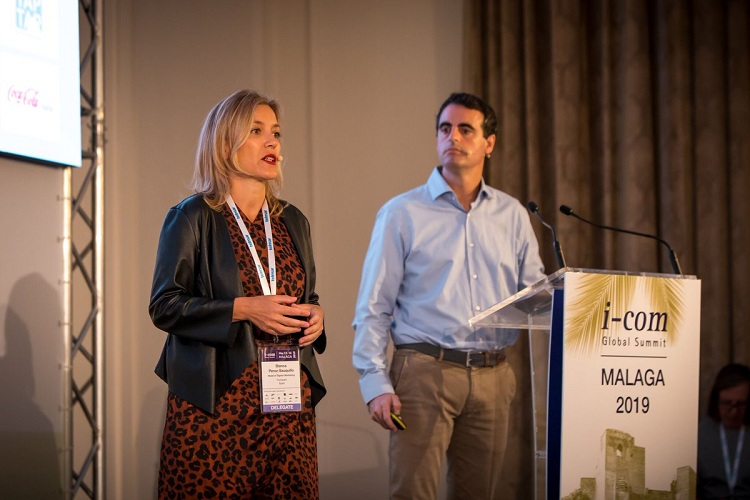Blanca Perez-Sauquillo, deputy marketing director, Turespana (Tourism Spain), spoke about how the organisation turned to location based marketing in order to become the second largest country for tourism in the world. Joining her on stage was the agency partner Alvaro del Castillo, founder and CEO, TapTap Digital.
Perez-Sauquillo stated how the economic crisis that hit the country changed its marketing efforts. "We are in a process to transform our mission and goal to become a data-centric organisation to get in tourism. Advertising has been the core of our business. But, the way we are doing it has evolved in the last three years. Before the Spanish economy crisis we had budgets to do big campaigns. But post that the restrictions came in and we moved to the online world. For the first few years post the crisis, Tourism Spain simply replicated its offline ideas and used them in its online campaigns. This changed in 2016.
She added, "We started focusing on quality. We didn’t want more tourists to come to Spain – but focused on the high profile traveler. We are doing this in a more efficient way. We have partnered with different companies and among them is TapTap."
del Castillo explained the scale of tourism in Spain. "Spain is the second largest tourist destination in the world. It’s a massive scale. The campaign was run globally across 47 countries and 17 languages. Tourism contributes to 14 per cent of Spain’s GPD. We reached 20 million users and collected a million profiles. We had 1,500 dynamic ads for these profiles. It required lot of efforts on the technical side. We understood that it couldn't be a one-off campaign and the data could be used long term," he said.
He then spoke about how the campaign has evolved in the last three years. "In the beginning (in 2016), among other data sources we used location data as one of the factors to bring in the data. There was also cookies and behavioral data. We were then able to activate this data by running dynamic ads in their own countries. We then saw whether any of these people who were targeted actually ended up visiting the country. This gave us a good idea of whether things were working. We then evolved in 2017 and 2018. We activated data at a more micro level. We saw data from travelers at airports across Europe and asked them for their actual interests. We gathered more than a million qualified users data from various airports across Europe."
He ended his talk by stating that in 2019, with location intelligence growing, the dependence on location data has increased to 60 per cent (from 20 per cent in 2016) for all the data sources the company uses for marketing campaigns for Spain Tourism.
Gayle Fuguitt, chief of customer insight and innovation, Foursquare, USA, then presented a case study for Jägermeister and futher explained the importance of location-based marketing.
"We had many creative executions to different target audiences. In modern marketing if you have to engage your target consumer, you have to use GPS for growth. You need to have real-time analytics to maximise and measure growth opportunities. Location technology will enable you to see where all the people are. Earlier it was either scale or precision. Now, we have precision at scale.
Through location technology you can come to know where they are and you can target them differently. We can serve these messages to them depending on that."

